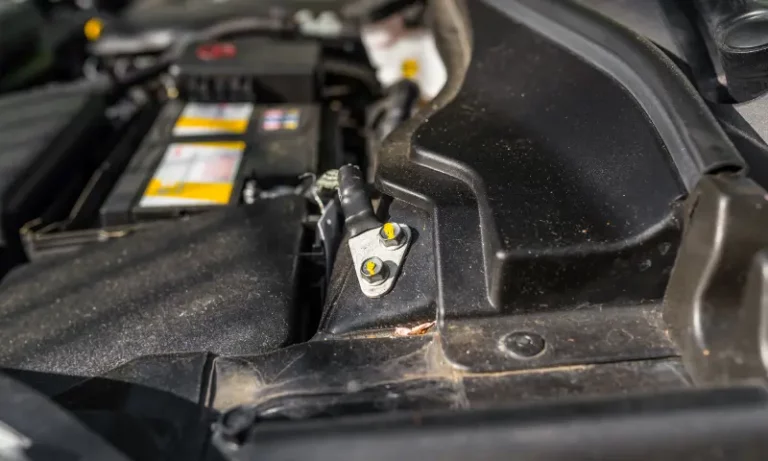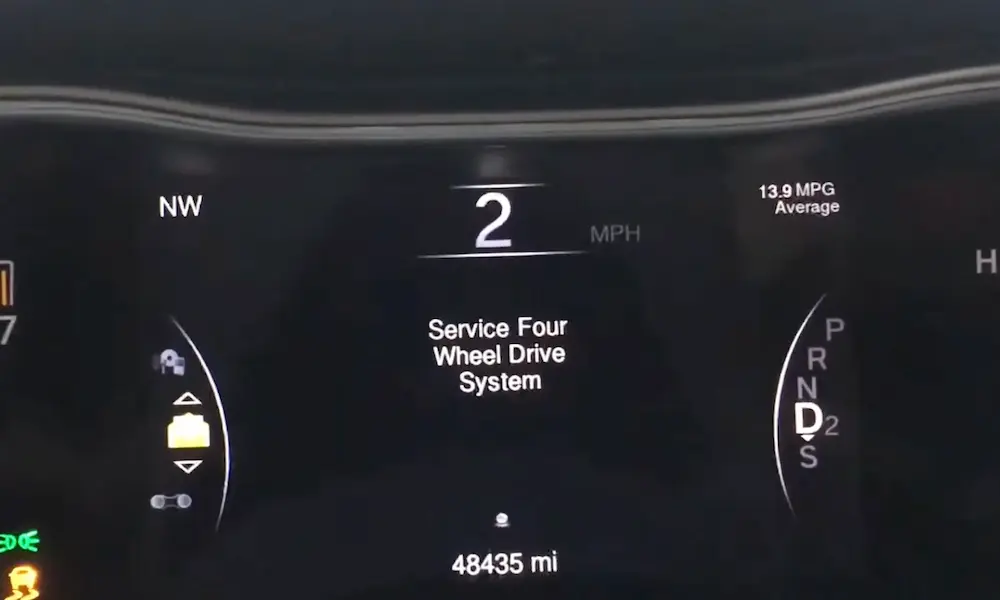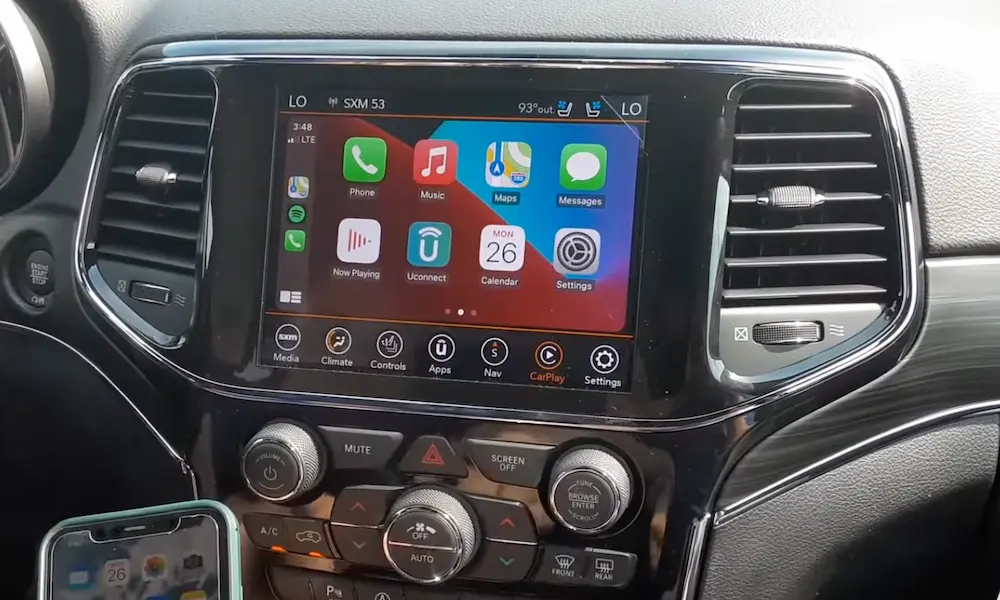The Jeep Grand Cherokee is undoubtedly a popular choice among off-road enthusiasts, but sometimes, you may encounter electrical issues. One such aspect is the ground wire location. Don’t worry; locating the ground wire in your Jeep Grand Cherokee isn’t as daunting as it may seem.
With a bit of knowledge, you will easily find the ground wire that runs from the vehicle’s wiring harness, connects to the engine block and chassis on the driver side, and finally, the battery’s negative terminal. This way, you can ensure that your Jeep’s electrical system is functioning properly and avoid any unexpected surprise during your off-road adventures.
Locate Ground Wire Location
To locate the ground wire in your Jeep Grand Cherokee, follow these simple steps. First, check around the engine block, as it is one of the main areas where ground wires are connected. The ground wire typically runs from the vehicle’s wiring harness to the engine block, chassis on the driver side, and the battery’s negative terminal.
Look for a wire that is bolted onto the chassis and engine block, and another one connecting the chassis to the battery’s negative terminal. Another area to inspect is the firewall, which is the barrier between the engine compartment and the cabin of your Jeep. You may find ground wires connecting the engine to the fire wall.
If you are still having trouble locating the ground wire, consult your vehicle’s repair guide. This can provide a more in-depth breakdown of ground wire locations specific to your Jeep Grand Cherokee model. It is essential to maintain proper connections with ground wires for optimal vehicle performance. Keep an eye out for any signs of wear or damage to these connections and address any issues promptly to ensure your Jeep remains in top condition.
Jeep Cherokee Bad Ground Symptoms
When dealing with a Jeep Grand Cherokee, it’s essential to be aware of potential ground wire problems. As you drive your vehicle, you may experience a variety of symptoms that could indicate an issue with the ground wires. In this section, we’ll briefly discuss some of the most common symptoms of ground wire issues in a friendly and helpful tone.
Dead Battery
One common symptom you might encounter is a dead battery. If your Jeep’s ground wires are corroded or not properly connected, it can lead to poor electrical conductivity. This could cause the battery to discharge, leaving you stranded with a dead battery. To prevent such a situation, make sure to regularly inspect the ground connections, especially the ones that run from the vehicle’s wiring harness to the engine block, chassis, and battery’s negative terminal.
Erratic Gauges
Another symptom to watch out for are erratic gauges. Your Jeep Grand Cherokee’s dashboard gauges, such as the fuel gauge, temperature gauge, and speedometer, rely on proper grounding to function correctly. If there’s a weak or poor connection with the ground wires, you may notice that these gauges become erratic or fail to display accurate information. It’s essential to address these issues quickly to avoid potential safety hazards and damage to your vehicle’s electrical system.
Flickering or Dimming Lights
Additionally, you might notice flickering or dimming lights, such as your headlights or interior lighting. A poor ground connection can limit the electrical current flow, leading to inconsistent performance of the lights. This not only makes it difficult for you to see the road ahead but can also be a hazard for other drivers.
Poor Engine Performance
Lastly, your Jeep might experience poor engine performance or even stalling. With inadequate grounding, the engine’s electronic control module might not receive the accurate information it needs to operate the engine efficiently. As a result, you may notice hesitation during acceleration, rough idling, or stalling.
How to Fix Loose Ground Wire
A loose ground wire in your Jeep Grand Cherokee can cause various electrical problems. It’s essential to address this issue promptly to avoid further complications. In this friendly guide, we’ll show you how to fix a loose ground wire in a few simple steps.
First, identify the location of the loose ground wire. A common spot for a ground wire in a Jeep Grand Cherokee is near the engine block, connected to a dipstick bolt. Other ground wires may be attached to the chassis or other components.
Once you’ve found the loose ground wire, check for any signs of damage or corrosion. If the wire appears damaged, it’s best to replace it with a new one to ensure a safe and secure connection. Otherwise, if the wire is in good condition, proceed with tightening the connection.
To tighten the connection, you will need a wrench or ratchet that fits the size of the bolt securing the ground wire. Ensure you turn off your vehicle and disconnect the battery before attempting any repairs. This will prevent any accidental short circuits or electrical injuries.
Loosen the bolt slightly and then clean both the ground wire terminal and the connecting surface using a wire brush or sandpaper. This step is vital as it helps establish a better connection and prevent any future corrosion issues. Apply some dielectric grease on the cleaned surfaces for added protection against corrosion.
Now, reposition the terminal over the connecting surface and ensure it’s aligned correctly. Using your wrench or ratchet, tighten the bolt securely. Make sure not to overtighten the bolt as this may strip the threads or damage the terminal.
Finally, reconnect your battery and start your Jeep. Check for any persistent electrical issues to confirm that the loose ground wire was the root cause. If you still notice any electrical abnormalities, consult a professional mechanic for further diagnosis and assistance.
Role of Ground Wires in Fuel and Power Systems
As a Jeep Grand Cherokee owner, you might be curious about the role of ground wires in your vehicle’s fuel and power systems. Ground wires play a crucial role in maintaining the electrical stability of your car. Let’s look at how these wires affect various systems within your Grand Cherokee.
Ground wires help ensure that your vehicle’s fuel system stays functional, including the fuel pump and associated gauges. The fuel pump gets power from the battery through the ignition switch and receives its ground connection through the PCM (acting on the fuel pump relay).
When it comes to your power windows, these wires help provide the necessary grounding for their operation. They connect the main ground straps to the window motors, ensuring a smooth operation with no electrical disruptions.
Fuses in your Jeep Grand Cherokee require proper grounding to function correctly. An insufficient ground can cause fuses to blow prematurely or prevent them from functioning altogether. By maintaining a secure connection, ground wires help protect your vehicle’s electrical components.
Your Jeep’s gauges rely on ground wires to function accurately. For instance, a weak ground connection can cause inaccurate readings on the fuel gauge. Ensuring all ground connections are secure and well-maintained can keep your vehicle running smoothly.
The Body Control Module (BCM) and Engine Control Unit (ECU) are essential components controlling many functions in your vehicle. Ground wires connect these components to the body and chassis, helping transmit important signals and maintain electrical integrity.
Ground straps are responsible for grounding various components in your vehicle. It’s essential to take care of these connections and address any corroded or damaged areas. You can find some of these straps on top of the right side frame rail halfway between the radiator support and the firewall.
Lastly, the main ground straps in your Jeep Grand Cherokee connect important electrical components like the engine block, chassis, and battery’s negative terminal. By keeping the main ground straps in good condition, you’ll ensure that your vehicle’s electrical systems function seamlessly.
Conclusion
In locating the ground wire for your Jeep Grand Cherokee, always refer to reliable sources like a Jeep Enthusiast Forum or specific repair guides from AutoZone. You will find the wire connected to the engine block, chassis, and battery’s negative terminal. Remember, when it comes to your vehicle, accurate and trustworthy information is essential for a successful repair or modification. Happy wrenching!













